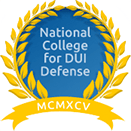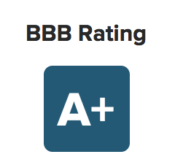Drug possession and distribution by both adults and juveniles is taken serious throughout New Jersey. There is no disputing that the heroin epidemic that has claimed 4,217 lives from 2004 to 2014 has enhanced enforcement. Not surprisingly, drug/CDS related offenses tend to draw significant attention from juvenile judges. If your child has been charged with any type of drug offense, whether it is simply for the possession of marijuana or distribution of heroin, MDMA or another form of CDS, you need to hire an experienced juvenile defense lawyer as soon as possible. All juveniles must be represented by an attorney when they walk into court and there is no exception to this rule. It is therefore in your son or daughter’s best interests to not only retain a juvenile lawyer but to do so as early as possible to insure maximum opportunity to avoid a conviction.
Our firm, The Law Offices of Jonathan F. Marshall, is comprised of highly skilled criminal lawyers who have a rich history of success in defending juveniles all over the state. And even before we were dedicating our work to representing those accused of offenses, several on our staff served as prosecutors. We know what it takes to fully protect your child and achieve the most favorable outcome of his/her charge. To speak to one of our attorneys immediately in a free initial consultation, contact us at 855-450-8310.
An Overview of Juvenile Drug Charges in New Jersey
Juvenile drug charges arise in a wide variety of forms. A juvenile can face a drug offense for the manufacture, possession, distribution, intention to distribute, transportation, or other effort in the trafficking of a substance deemed by the federal government and the state of New Jersey to be a controlled dangerous substance. These substances are divided into five categories, known as schedules, according to their current accepted medical use, their potential for harm to their users, and users’ potential to become dependent and suffer physical and psychological harm from their use. The schedule of the drug cited in an individual’s drug charge is a significant factor in determining the penalties the individual will face.
In New Jersey, criminal cases involving juveniles are handled by the New Jersey Juvenile Justice Commission, rather than the New Jersey Division of Criminal Justice. There are a few key differences to note between these two processes, one of which is the difference in terms used to discuss individuals facing charges and how their cases are handled. An adult who is found guilty of a criminal offense is convicted of a crime. He or she is then sentenced to a set of penalties that may include fines, incarceration, probation, community service, or other punitive measures. A juvenile who is found guilty of a criminal offense is adjudged as a juvenile delinquent and faces dispositions, which can include punitive as well as rehabilitative measures. In general, there is a greater focus on rehabilitation of the offender in juvenile cases than there tends to be with adult offenders.
The dispositions a juvenile delinquent receives depend on the nature of his or her offense, his or her previous criminal record, his or her age and personal needs, his or her record of receiving intervention and other social services, and any other factors deemed relevant. Dispositions can include incarceration, release of the juvenile to his or her parents or another guardian deemed suitable, the completion of a substance abuse rehabilitation program, community service, or the completion of a vocational or educational program.
Many former juvenile delinquents seek expungements of their criminal records years after they complete their dispositions. An expungement is the removal of a charges or adjudication from one’s record that makes it possible for him or her to truthfully state that he or she had not been charged or convicted of that offense. It also prevents the charge or adjudication from coming up in most background checks, giving the individual a greater chance of securing employment, housing, or educational opportunities later.
Juvenile Drug Possession
When a juvenile is found to be in possession of a controlled dangerous substance without a valid prescription for the substance, whether or not he or she had the intent to distribute that drug to others has a significant impact on the severity of his or her charge. The simple possession of any Schedule I through Schedule IV substance is a third degree crime that can result in two years of detention and a fine of up to $35,000 for the juvenile delinquent. Substances whose possession may be charged this way include heroin, cocaine, LSD, anabolic steroids, and methamphetamine. Drug analogs, such as methadone, are also illegal for minors to possess without a valid prescription. For a Schedule V substance, which includes most cough suppressants, is a fourth degree crime that can result in one year of detention and a fine of up to $15,000.
Marijuana and its derivatives occupy a special category in New Jersey drug law. The possession of more than 50 grams of marijuana or more than five grams of hashish is a fourth degree crime. The possession of a lower amount of hashish or marijuana is a disorderly persons offense, which can result in six months of detention. With fourth degree crimes and disorderly persons offenses, there is a presumption of probation for first offenders. In other words, unless an individual has a prior criminal record, he or she customarily will not be incarcerated for either of these grades of possession.
For a juvenile found guilty of the possession of a controlled dangerous substance with the intent to distribute it, the penalties he or she faces are steeper. The penalties a juvenile faces for this offense depend on the schedule of the drug he or she intended to distribute as well as the amount of the drug he or she possessed. Further, the intent to distribute certain substances carries special penalties beyond the ones assigned to that substance’s schedule. One example of this is heroin. Talk to your child’s lawyer about all of the factors at play in his or her case and how they can determine the dispositions he or she faces.
If a juvenile was found to be in possession of a controlled dangerous substance while in or within 1,000 feet of school property, he or she must perform a mandatory 100 hours of community service alongside any other dispositions for his or her delinquency. These areas are known as school zones and include any property of a school or school district, such as a school building, a school bus, or an athletic field.
For a more detailed discussion of this subject, refer to New Jersey juvenile drug possession charges.
Juvenile Drug Distribution
Distribution of a controlled dangerous substance with the intent to distribute can be a complicated charge. As outlined above, the amount of the substance the juvenile had in his or her possession with the intention of distributing it as well as the substance’s schedule generally determine the penalties he or she faces for a charge, but there are specific substances that have rules of their own. They are:
- Methamphetamine. The possession of five ounces or more of methamphetamine, including any adulterants or diluents, with the intent to distribute the drug, is a first degree crime. For the possession of anywhere from one half ounce to just under five ounces of methamphetamine is a second degree crime, and the possession of less than a half ounce of methamphetamine with the intent to distribute it is a third degree crime; and
- Heroin or Cocaine. The possession of five ounces or more of either of these substances with the intent to distribute it, including adulterants, is a crime of the first degree. For the possession of one half ounce to five ounces of either heroin or cocaine, a juvenile can face a second degree charge and for the possession and intent to distribute less than a half ounce of either, the juvenile can face a third degree charge.
Otherwise, the possession of one or more ounces of any Schedule I or II substance with the intent to distribute the substance is a second degree crime. For the possession and intent to distribute less than one ounce of any Schedule I or II substance, the juvenile may be charged with a third degree crime. If your child has been charged with the possession and intent to distribute a Schedule III, IV, or V substance, speak with his or her lawyer about the penalties he or she may face. You can find additional information on this subject by referring to New Jersey drug distribution charges.
Work with an Experienced New Jersey Juvenile Defense Lawyer
If your son or daughter is facing a drug charge in New Jersey, be an advocate for your child by getting him or her the help he or she needs. Your child might need to undergo substance abuse treatment in order to recover from an addiction, but right now, he or she needs help from an experienced juvenile defense lawyer who can advocate for your child as he or she works through the juvenile justice system. Juvenile drug charges are not the same as adult drug charges, so it is critical that you work with a lawyer who has specific experience working with individuals under the age of 18. To learn more, contact our team at The Law Offices of Jonathan F. Marshall to schedule your initial legal consultation in our office. We are a team of dedicated New Jersey juvenile defense lawyers who can work with your child and the New Jersey Juvenile Justice Commission to make it possible for your child to receive the help he or she needs.











